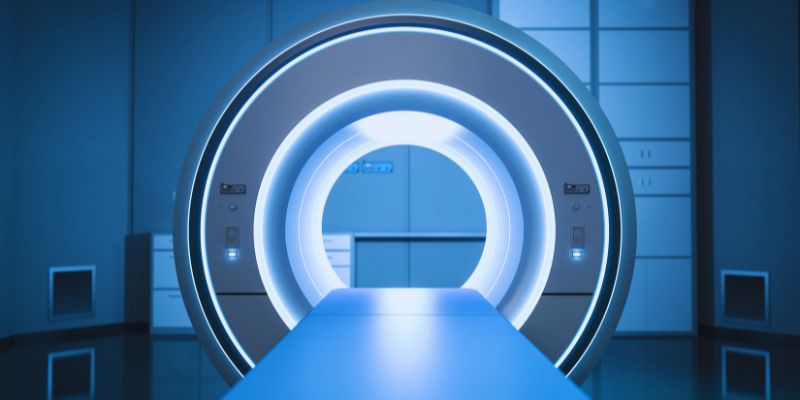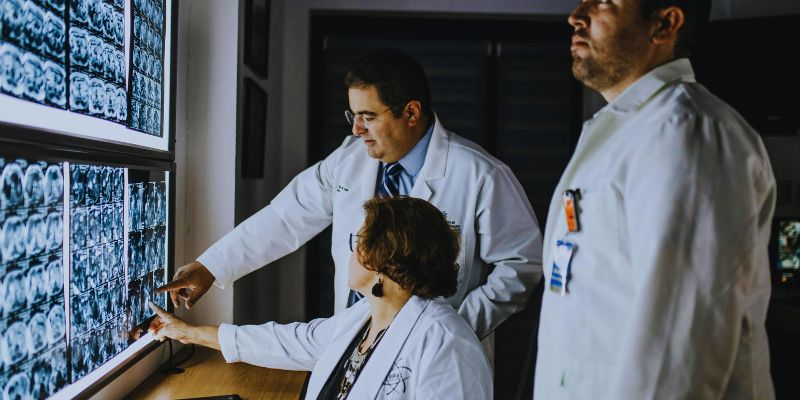The widespread disorder known as atrial fibrillation affects millions of people worldwide and causes abnormal heart rhythms. Though it may seem benign at first, this condition raises a person's risk of stroke. The association is strong, and many AFib sufferers are not aware they are at risk. Although they are not perfect, conventional tools such as risk assessments help doctors to forecast who might have a stroke.
These findings miss subtle brain changes that symptoms do not reveal. That's where an MRI scan with a special purpose finds application. This new approach offers a different viewpoint on brain activity. It could help to find stroke risks before they manifest themselves too late. This article describes the operation, results, and possible effects on stroke prevention for AFib sufferers of the scan.

What Is Atrial Fibrillation and Why Is Stroke a Risk?
Irregular cardiac motion results from the condition known as atrial fibrillation, or AFib. The uneven rhythm causes the heart's top chambers to shake instead of beating evenly. Blood may pool in the heart and form clots. If a clot gets to the brain, it will block blood flow and lead to a stroke. Stroke is one of the most severe effects of AFib. The risk increases when one gets older and has other medical conditions like diabetes or high blood pressure.
Many people with AFib have no symptoms and may not realize they are at risk. Stroke risk assessments such as the CHA₂DS₂-VASc guide medical professionals in treatment recommendations. These findings, meanwhile, do not capture what is happening inside the brain. A poor score could not always point to underlying brain injury for every person. That is why a new tool, such as a tailored MRI scan, could more fairly depict stroke risk.
What Is This Special MRI Scan?
Considered a brain magnetic resonance imaging scan, this unique MRI scan provides a comprehensive brain image. It generates clear images without using dangerous radiation through magnets and radio waves. This scan uniquely detects subtle brain issues like white matter damage and silent infarcts. Silent infarcts are small strokes that cause no symptoms but may signify future risk. White matter lesions represent places where blood flow in the brain is decreased or impeded.
Routine tests cannot find these early changes, which are usually invisible to patients. However, this MRI scan shows them clearly. Doctors think spotting these early changes enables them to react quickly to stop major strokes. Doctors can observe brain changes even when patients show no symptoms. For those with atrial fibrillation, this provides better protection and enables more precise recommendations about stroke prevention.
How the MRI Scan Helps Predict Stroke
By displaying early signs of brain injury, the MRI scan helps clinicians predict stroke risk more precisely. Although atrial fibrillation patients might not experience any symptoms, the brain could still be vulnerable. The scan exposes minor lesions, such as silent infarcts or alterations in white matter, implying inadequate blood supply. Studies show that people with these brain changes are at higher risk of future strokes. It gives doctors important knowledge to modify treatment depending on real brain conditions.
For instance, a patient with many white matter lesions could require more potent blood thinners, whereas someone with a clean scan might cut back on needless medicine. This tailored care enhances safety and decreases negative effects. Doctors can now examine the brain directly rather than solely on overall risk assessments. The scan can identify high-risk patients early, giving doctors time to act before a major stroke.
Benefits of Using MRI to Predict Stroke Risk
Here are the key advantages of using MRI scans to understand better and predict stroke risk in AFib patients.
- Detects Silent Brain Injuries: MRI can detect small strokes or white matter alterations without symptoms. Regular visits usually overlook these quiet injuries. However, they are early indicators of stroke risk, and early detection enables doctors to react faster.
- Offers a Clearer Risk Picture: MRI reveals actual damage, unlike risk assessments based on age or medical history, which project risk. It offers a straightforward perspective of what is happening inside the brain. It helps identify patients whose low-risk scores don't match their brain condition.
- Improves Treatment Decisions: MRI findings let doctors decide on a better action. Those with significant brain damage could require more robust stroke prevention strategies. Others could steer clear of needless medications. It ensures more personal and safer treatment.
- Tracks Brain Health Over Time: MRI can be utilized more than once to check for developing brain damage. It enables clinicians to determine whether treatment is working or requires modification.
- Builds Patient Awareness: Real-world brain imaging helps patients better understand their illness. It can inspire individuals to follow treatments closely and adopt good lifestyle modifications to reduce stroke risk.

What Are the Limitations of This Scan?
The unique MRI scan has several restrictions despite its many advantages. Cost is a key concern. Many health insurance policies do not cover expensive MRI scans for stroke risk screening in AFib sufferers. Access presents still another issue. Not every clinic or hospital has the sophisticated MRI equipment required for these thorough brain examinations or experienced personnel. The procedure also takes time and might not be appropriate for patients with some medical issues, including those with severe claustrophobia or metal implants.
The scan may also cause discomfort or anxiety in some patients. Furthermore, even if the scan reveals brain alterations, this does not always indicate a stroke will strike soon. It suggests possible risks but doesn't offer precise predictions. Doctors must still care when using the results and other medical data. More studies are required to verify the frequency of these scans and the people most likely to benefit from them.
Conclusion:
In conclusion, atrial fibrillation greatly increases the risk of stroke frequently without warning. Traditional risk assessments could overlook early brain injury, even if they influence treatment. Before more significant problems develop, a specialist MRI scan provides a better view of the brain condition by seeing white matter alterations and silent strokes. It leads to better treatment decisions and more personalized care. The scan promises to prevent strokes, including cost and access, even if it has restrictions.












